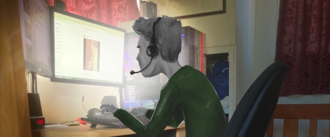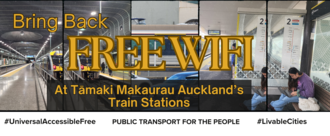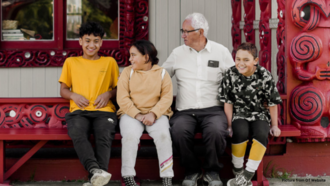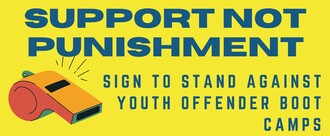-
Aotearoa Educators for the learners of GazaWe are a group of teachers (ECE, primary and secondary), head teachers, education support staff, principals, and union members from across Aotearoa. We stand together for the right of young Palestinians to life and education. We work alongside learners every day. We consider their struggles, strengths, and the futures that their education lays the foundation for. Consequently, the gravity of what children, students and educators in Gaza are going through hits home. Silence in the face of this unimaginable violence is not an option. The UN Office for Coordination of Humanitarian Activities 15 May 2024 report over 14,500 Palestinian children have been murdered in the past 8 months. Israel’s war on Gaza has created what UNICEF termed as “the most dangerous place in the world to be a child.” Save the Children calculate that 2% of Gaza’s child population has been killed or injured. UN experts are expressing grave concern over a pattern of attacks on schools, universities, teachers and students in Gaza have warned of a ’scholastacide.’ The term refers to the systematic and deliberate obliteration of education. We see this in the following: • Of 625,000 registered students in Gaza no child has had access to formal education for half a year • Relentless bombing has left the majority of school buildings damaged or destroyed • 261 teachers and 95 university professors have been killed • 1.4 million are now using schools and shelters while existing in the jaws of a man-made famine • All 12 universities in Gaza have been destroyed • The targeted destruction of education infrastructure endangers the educational future of an entire generation • Mental health experts are warning that with homes, schools and family life ripped away, the psychosocial impacts on children are likely to be lasting • 460 Palestinian children have been arbitrarily detained by Israel since 7 October, with some reporting starvation and abuse inside detention Palestinians are among one of the most highly literate populations in the world. They are as deserving of dignity and futures as any other learners, anywhere else in the world. To be able to learn, children and students need not only schools, but food, water and basic safety. We know within the rubble and tents our education colleagues are doing all they can to preserve learning in make-shift classrooms, but the destruction must end. We highlight the ongoing funding of UNRWA as part of our call. The New Zealand government just announced it would make its usual scheduled payment of $1 million to the agency. The World Health Organisation emphasised that no entity other than UNRWA has the capacity to deliver the scale and breadth of assistance that 2.2 million people in Gaza urgently need. New Zealand must continue to and expand its funding of UNRWA. Our government has a range of diplomatic options to continue adding to the international pressure to end Israel's genocide in Gaza. Naming and condemning the deliberate bombing of schools and attacks on education by Israel in Gaza is a critical way to show moral leadership. The children of Palestine have a right to not only life, freedom and safety, but education. When these rights are under attack, we must act.1,144 of 2,000 SignaturesCreated by Educators for Palestine
-
Fund public transport in Greater ChristchurchWell-funded public transport systems create healthy, connected cities which are better for the public and for the climate. Improving the frequency, reach and quality of public transport services in Greater Christchurch will ultimately benefit the whole community. Greater Christchurch is growing rapidly - a 10% population growth from 2018 to 2023, far higher than the national average of 6%, and much of that growth located in the Selwyn (29% increase) and Waimakariri (11% increase) regions [2]. More planning is required to ensure that Greater Christchurch remains a liveable, accessible city. A city of Christchurch’s size requires a good public transport system, one that gives residents an alternative to car dependency. Car usage is becoming increasingly expensive, especially as Greater Christchurch continues to sprawl, locking in longer journeys. Public transport usage in Christchurch is increasing, with almost one-third of Christchurch residents having used it at least once in 2023, and 14.3 million trips a year [3], but requires investment to become accessible for all residents. Christchurch residents have made this clear in their submissions on ECan’s Long-Term Plan - 64% of submitters want improved public transport. We envision a city where residents can access safe and sheltered bus stops close to their homes, and be able to get where they want to go with convenience. A city where our streets and roads are not congested with traffic, and safe and enjoyable places to get around, whether on foot, cycling, in a car, or by bus. As transport makes up over 50% of Christchurch’s greenhouse gas emissions [4], and contributes to our air pollution problem, which kills 800 people a year in Christchurch alone [5], moving more people onto public and active transport is good for our health and good for the planet. As outlined above, there is a plan, which has already been agreed to by the various councils and NZTA - the PT Futures plan. However, to implement the plan, Central Government funding is required [6]. The Government have pulled back on an earlier commitment of 78 million in funding towards the project. Despite $2.7 billion in funding for transport announced in the budget in May, there were no funds earmarked for public transport in Christchurch [7]. Given the importance of investment in public transport in Greater Christchurch, there is still time for additional funds to be found. Unlike the proposed rural highway projects, funding public transport will dramatically speed up getting to places within the city. Public transport in Christchurch has long been neglected. Oliver Lewis of BusinessDesk wrote a great article titled “Christchurch misses out in transport funding lottery” [8], which highlights the disparity of funding for transport that Christchurch receives compared to Auckland and Wellington, and is worthwhile reading. We ask Simeon Brown to invest in Greater Christchurch and support the PT Futures plan, which will turbo-charge public transport in Ōtautahi. References: [1] https://www.ecan.govt.nz/your-region/living-here/transport/public-transport-services/transforming-public-transport [2] https://www.thepress.co.nz/nz-news/350294139/christchurch-getting-older-more-diverse-and-much-much-bigger [3] https://ccc.govt.nz/the-council/how-the-council-works/reporting-and-monitoring/life-in-christchurch/transport [4] https://newsline.ccc.govt.nz/news/story/latest-greenhouse-gas-emissions-report-released-for-christchurch [5] https://www.rnz.co.nz/news/national/470488/air-pollution-invercargill-revealed-as-deadliest-centre-study [6] https://businessdesk.co.nz/article/infrastructure/short-sighted-christchurch-bus-funding-doesnt-exist-council-says [7] https://budget.govt.nz/budget/pdfs/releases/l12a-factsheet-transport.pdf [8] https://businessdesk.co.nz/article/transport/christchurch-misses-out-in-transport-funding-lottery607 of 800 SignaturesCreated by Greater Ōtautahi

-
Join the movement for economic justiceThousands of job losses. Rolling attacks on Te Tiriti o Waitangi. No-cause evictions and selling off public housing. Cuts to our public transport, health and education. It is clear - this government has waged economic war on everyday people in Aotearoa. Their approach isn’t new. Taking from our collective pool to line the pockets of private interests is a tried and true method of moving resources away from our communities and forcing more and more of the basics of life into businesses to be profited from. It puts profits over people, and our living world. For what? We can shift the dial. Through a vision for an Aotearoa that is fair and flourishing, where Te Tiriti o Waitangi is honoured properly, and for an economic system therefore that puts the wellbeing of people and our planet above corporate profit- we can unify, act, and build toward real change. Now is the time to act together. Sign up to the campaign now to find out how to get involved. Mauri ora!534 of 600 SignaturesCreated by Team ActionStation

-
Whangārei District Council: Call for a Permanent Ceasefire Now!As the Israeli military continues its bombardment and siege on the people of Gaza and throughout Palestine, and as the US government continues its support by sending weapons and bombs to Netanyahu to drop on civilians, the world is being called upon to act. Whangārei is no different. We must act locally, and do everything we can in our town to grow support for the movement for justice and peace for Palestine. On the 27th of June 2024, The Whangārei District Council (WDC) will vote on a motion to call for an immediate, permanent ceasefire and resumption of adequate humanitarian aid to Gaza. We aim to present WDC with a petition signed by as many locals as possible, to show the widespread local support in Whangārei for a permanent ceasefire, and encourage them to vote the motion through. Sign up and get your friends to do the same today! About PSNW: Palestine Solidarity Network Whangārei (PSNW) is a group based in Whangārei, Aotearoa, working at a local level in solidarity with the Palestinian-led movement to advance the cause for justice, peace, freedom and the right to return for all Palestinians. We have two guiding principles of our work: Solidarity. Palestinian Liberation must be Palestinian-led, and as a rōpū working in solidarity, our job is to find ways to further Palestinian-led struggles where we are at - not to determine what this liberation in itself means. Decolonisation. Our rōpū works on the basis that the movement against Israeli colonialism in Palestine must be seen in tandem with global indigenous struggles, and specific to us, our home movement for Te Tiriti justice and Tino Rangatiratanga. Our organising must always work to respect the authority of mana whenua, uphold Te Tiriti o Waitangi, and where possible further the movement for Tino Rangatiratanga. PSNW is proud to work closely with other solidarity rōpū in Te Tai Tokerau, and across the motu and has taken great inspiration from the successful motions made by the Far North District Council and the Whanganui District Council in calling for a permanent ceasefire in Gaza. Now it’s time for Whangārei to do the same! Ceasefire now!446 of 500 SignaturesCreated by Clare Maguire
-
Eliminate the $20 Daily Boat Ramp Parking charge in TaurangaThe price of using the ramps to access the water is already payed for in our rates and we live here to use its natural resources we should bet need to pay to go out and enjoy the water.709 of 800 SignaturesCreated by Bevan Hamilton
-
Hunger Strike for Gaza: Fund UNRWA Now!Most of us believe that every person, no matter our religion, where we come from, or what we look like, deserves to live with freedom, safety and belonging. We want all children to grow up surrounded by joy, laughter and opportunities. But for people in Gaza their days are full of starvation, death and desperation. When an Israeli tank hit 6-year-old Hind’s car, her family died in front of her. She managed to call the Red Crescent, which sent an ambulance. The Israeli forces then attacked the ambulance, killing everyone inside. Hind, the little Palestinian girl, was found dead two weeks later in the car surrounded by the decomposing bodies of her family members. Hind was one of over 14,000 Palestinian children killed by Israel so far, not including those still buried under rubble. Israel is standing trial at the International Court of Justice, which found it is “plausible” that Israel has committed acts that violate the Genocide Convention. Under the Genocide Convention, to which New Zealand is a signatory, New Zealand has an obligation to prevent genocide. But we are yet to take any action of substance to preserve the lives of the thousands of innocent Palestinians being killed by Israel. The ICC Prosecutor is recommending arrest warrants be issued for Israeli leaders, saying: On the basis of evidence collected and examined by my Office, I have reasonable grounds to believe that Benjamin NETANYAHU, the Prime Minister of Israel, and Yoav GALLANT, the Minister of Defence of Israel, bear criminal responsibility for the following war crimes and crimes against humanity committed on the territory of the State of Palestine (in the Gaza strip) from at least 8 October 2023: · Starvation of civilians as a method of warfare as a war crime contrary to article 8(2)(b)(xxv) of the Statute; · Wilfully causing great suffering, or serious injury to body or health contrary to article 8(2)(a)(iii), or cruel treatment as a war crime contrary to article 8(2)(c)(i); · Wilful killing contrary to article 8(2)(a)(i), or Murder as a war crime contrary to article 8(2)(c)(i); · Intentionally directing attacks against a civilian population as a war crime contrary to articles 8(2)(b)(i), or 8(2)(e)(i)...; · Extermination and/or murder contrary to articles 7(1)(b) and 7(1)(a), including in the context of deaths caused by starvation, as a crime against humanity; · Persecution as a crime against humanity contrary to article 7(1)(h); We can no longer stand by while our own government is complicit in an on-going genocide by Israel against the Palestinian people. Innocent children are being killed in the thousands. Israel has violated international law for decades with full impunity granted by Western governments like New Zealand. Israel has rained down some of the most advanced weaponry on 2.3 million captive civilians for 7 long months. Meanwhile, Minister Winston Peters has made no public commitment to delivering this year’s instalment of humanitarian funding to UNRWA despite a famine caused by Israel’s months long siege on Gaza. There is no time to waste in sending funding - and we should double it, at the very least. Famine is one of the weapons of genocide being used against the Palestinian people by Israel. Only UNRWA has the skills, the capacity and the personnel to deliver the massive humanitarian aid needed for 2.3 million Palestinians across Gaza - funding other groups will not be effective in ending the famine. Not only has New Zealand’s aid response been inadequate, there is also a possible connection between a New Zealand company and the weapons being used by Israel. In April 2024, PSNA raised concerns with Minister Peters that New Zealand company Rakon may have supplied crystal oscillators to the US military which incorporated them into weapons (J-DAMs) they supplied to Israel (1). In December 2023, Amnesty International reported that US-made J-DAMs were used by the Israeli military in two deadly, unlawful air strikes in Gaza (2). In May 2024, the US initiated a review of its J-DAM shipments to Israel, amid concerns that Israel may have used US-weapons in breach of international law (3). The New Zealand government has an obligation to investigate whether Rakon’s components could have been in these weapons used to breach international law in Gaza. Given the risk of complicity in serious breaches of international law, pending this investigation, the New Zealand government should also suspend exports of any components to the US military that may end up used by Israel. New Zealand troops have been deployed to the Red Sea to support its ally, the United States of America in their activities in Yemen. Yemen is disrupting commercial shipments linked to Israel in an attempt to stop the genocide in Gaza. It doesn’t matter whether our troops are cleaning latrines or pressing the button. Their presence there means that New Zealand is actively supporting US activities in Yemen just to keep weapons flowing into Israel. On 18 May I, William Alexander, began a zero calorie hunger strike to call on the NZ government to stop supporting Israel's genocide of Palestinians. I’m asking them to take three meaningful actions: increase our funding for UNRWA; investigate claims that NZ company Rakon may be supplying components for weapons used by Israel; and withdraw NZ troops from the Red Sea. By doing these things the NZ Government can alleviate the suffering being inflicted on the Palestinian people and signal to political leaders around the world, including the US, that we need to stop supporting and enabling Israels acts of genocide. References: 1. https://thedailyblog.co.nz/2024/05/01/winston-peters-sidesteps-the-genocidal-elephant-in-the-room/ 2. https://www.amnesty.org/en/latest/news/2023/12/israel-opt-us-made-munitions-killed-43-civilians-in-two-documented-israeli-air-strikes-in-gaza-new-investigation/ 3. https://www.bbc.com/news/articles/c4n14merj97o7,746 of 8,000 SignaturesCreated by William Alexander
-
Get Better Buses for Ōwhiro BayŌwhiro Bay is a growing suburb. Situated in the south of Wellington, it hosts a vibrant local community of 2,000 residents. However, Ōwhiro Bay receives the worst bus services in the entirety of Wellington City. Having once had a decent network, it has since spent the last 6 years deteriorating into a state where at the best of times, you’d struggle to have a wait time of less than an hour for a bus during the evening rush hour. We want to see bus services return to the suburb, to a level where anyone can take a bus from our great suburb. As Wellington moves away from car-based transport, Ōwhiro Bay is being left behind. Metlink however, feels that everything is fine. Their metrics only account for demand but don’t take into account the impacts of cancellations, reduced services, or community opinion. Because Ōwhiro Bay receives, by their incorrect metrics, the bare minimum of service levels, they do not believe there is an issue. However, the numbers show otherwise. Ōwhiro Bay receives the worst level of bus services, relative to its population, in the entirety of Wellington City. We believe, through the implementation of our eight recommendations, that the bus services in Ōwhiro Bay can improve considerably and return to levels that a suburb our size deserves. We want to see a good bus service in the entirety of Wellington, and it starts with getting better bus services for Ōwhiro Bay.360 of 400 SignaturesCreated by Arunan Noble
-
Invercargill City Council: call for an Immediate and Permanent Ceasefire in GazaOn January 26th, the International Court of Justice determined that the Israel-Gaza conflict plausibly amounts to genocide. As of July 12th, 38,000 Palestinians have been killed, over 90,000 injured, and 90% of the population displaced—roughly half under the age of 18. Despite the seriousness of the situation, and calls for a ceasefire from regional bodies such as the Whanganui and Far North District Councils, there has been no response from our local representatives. Remaining silent on violence and terror against civilians is not a neutral stance, we have a duty to the Palestinian families within our communities who are affected by these events. Denouncing atrocities and calling for action holds significant political weight and influences our collective well-being. A community committed to upholding human rights ensures safety for everyone. As a member state of the United Nations, New Zealand is bound to proactively support its resolutions. Numerous resolutions, including the recent UN Security Council Resolution 2728 adopted on March 25, 2024, call for a ceasefire and this call has been supported by many local and international bodies. In March 2022, Parliament unanimously voted to condemn the Russian government's invasion of Ukraine, reflecting our country’s strong tradition of upholding international human rights. In line with this, we urge the Invercargill City Council and Southland Regional Council to honour international law and join the Whanganui and Far North Councils in calling for a ceasefire.79 of 100 SignaturesCreated by Seren Palliser-O'Donohoe
-
Establish a dedicated trafficking and exploitation helplinehttps://www.youtube.com/watch?v=6x-haSgcj-Q There are currently an overwhelming number of helplines for migrant exploitation, labour exploitation, sexual violence and child abuse, which are operated by both government and non-government organisations. With so many options, exploitation victim-survivors often feel confused about where to get the best information on their situation, before even considering formal reporting through the police or other agencies. Exploitation is a unique form of abuse as it involves some form of commodification of people (including online or through technology-assisted methods), and requires a specialised emergency response and approach to victim-survivor recovery initiatives. The Slave Check Foundation's research [1], involving 12 adult survivors from New Zealand and Australia, revealed alarming gaps in recognition and response when victims sought help. The overwhelming response from all the survivors who took part in the research was that they wanted a helpline and that the existing helplines are confusing for them. A staggering 60 percent of surveyed survivors reported that initial attempts to seek assistance from organisations such as the police, medical agencies, or helplines did not result in recognition of their situation being exploitative. As stated in the 2022 Trafficking in Persons report produced by the US State Department, "the Government of New Zealand does not fully meet the minimum standards for the elimination of trafficking" and does not yet have a national referral mechanism in place which includes a dedicated helpline [2]. Overall, victims of exploitation and trafficking face numerous barriers to reporting and/or receiving support, including a lack of awareness and tailored, trauma-informed support. Implementing a new helpline monitored by highly trained people who can deliver streamlined, trauma-informed support and information will lead to: a) increased reporting of exploitation, b) safeguarding individuals who are in, or vulnerable to exploitative situations, c) more accurate and representative data of the scale of the issue and information for intervention and prevention targets and strategies. Given the mistrust and anxiety associated with reporting via government channels, this helpline should connect to official channels where required and appropriate help services, but be administered by a non-government organisation. An increase in reporting will also create more vulnerability for victim-survivors if wrap-around services are not available, so this needs to be a key priority in the development of a dedicated helpline and referral system. The helpline should be adapted to suit a range of accessibility and language needs, offer multiple access points, including phone, web, chatbot, and text. A dedicated and centralised helpline system would remove the barriers and allow for easier help seeking for victims of trafficking and exploitation, aligning Aotearoa New Zealand with international best practice for addressing exploitation and trafficking. Will you join us in calling for an Aotearoa New Zealand where everyone is valued and cared for by their communities? ------------------------------------------------ For further information: https://www.ecpat.org.nz/act-now/ References [1] https://www.slavecheck.org/helpline-recommendations [2]https://www.state.gov/wp-content/uploads/2022/10/20221020-2022-TIP-Report.pdf1,992 of 2,000 SignaturesCreated by ECPAT New Zealand Child Alert
-
Auckland Transport: Turn the WIFI back on!During covid lockdowns Auckland Transport turned off the WIFI service which was available at all train stations in Tāmaki Makaurau Auckland, and have not yet resumed this essential service. Public transport passengers are constantly referred to the Auckland Transport website to check the schedule changes or plan our journeys, but many of us cannot afford internet data to check the website. As Auckland Transport relies almost solely on their website to inform journey planning, it only makes sense to give the public access to this website by providing WIFI at the train stations. WIFI is an essential service to transfer money so we can pay to top-up our Hop cards, and for passengers' personal safety. It is a service which would make Tāmaki Makaurau Auckland a livable city for public transport users. We know Auckland Transport can provide public and free WIFI, it's only right that they do!17 of 100 Signatures
-
Save Oranga Tamariki’s Te Tiriti commitments (7AA)We all want the laws and practices guiding how we as a country look after children in care to have their best interests at heart. We know feeling connected to their culture and history is essential to children's wellbeing. Section 7AA is the only section of the Oranga Tamariki Act that ensures our tamariki Māori have their best interests protected through state care processes. It allows an ongoing partnership between the Crown and Māori to remedy shortfalls experienced by tamariki and their familial ties through state care processes. The repeal of this section will impact the way Oranga Tamariki interact with our children, straining their whakapapa ties with little to no regard as to the implications. Minister for Children Karen Chhour plans to introduce a bill to take 7AA out of the Oranga Tamariki Act to Parliament in mid-May.[1] Section 7AA is the primary legal mechanism for recognising the Crown's Te Tiriti o Waitangi duties in our child protection system, ensuring: 1) The policies and practices of Oranga Tamariki have the objective of reducing socio-economic and historic disparities by setting measurable standards and outcomes for Māori 2) That the polices, practices and services of Oranga Tamariki have regard to mana Tamati, whakapapa and whanaungatanga 3) Partnerships with hapu, iwi and Māori-led organisations are ongoing and strong to protect our Tamariki 4) Accountability is practised by reporting publicly and annually what the Ministry has done, and the impact of those actions with clear next steps. The recent report from the Waitangi Tribunal sheds light on the deeper implications of such a repeal, emphasising the profound impact it would have on the lives of our tamariki and their whānau.[2] Now is the time for action, for us to come together and defend the rights of our children. Indigenous voices and perspectives must be central to any changes made to legislation affecting their well-being. The absence of meaningful consultation with Māori about the repealing of these sections is deeply concerning and represents a failure to uphold the principles of partnership and participation enshrined in Te Tiriti o Waitangi.[3] Without adequate safeguards and holistic considerations, changes to the Oranga Tamariki Act could inadvertently harm vulnerable children and families, particularly those already disproportionately affected by systemic inequities and socio-economic challenges. By signing this petition, you are standing up for the rights of our tamariki and sending a clear message that their well-being and cultural identity must be protected at all costs. Together, let's ensure that Section 7AA remains intact. Join us in this crucial fight by signing the petition today and spreading the word to your friends, family, and community. Together, we can make a difference and safeguard the future of our children. References [1] https://www.parliament.nz/en/pb/hansard-debates/rhr/combined/HansDeb_20230726_20230726_44 [2] https://www.waitangitribunal.govt.nz/news/tribunal-releases-report-on-oranga-tamariki-section-7aa-urgent-inquiry/ [3]https://www.nzherald.co.nz/nz/government-warned-against-repealing-oranga-tamarikis-treaty-commitments/KXJFQ4PU35CSNIBMQE2O7Q6OJI/ https://www.teaonews.co.nz/2024/04/23/not-a-good-look-legal-expert-on-minister-karen-chhours-oranga-tamariki-act-change/ https://www.rnz.co.nz/news/political/514638/crown-lawyers-attempt-to-block-waitangi-tribunal-summons-to-minister-for-children https://www.nzherald.co.nz/kahu/state-abuse-survivor-urges-against-repealing-oranga-tamariki-treaty-commitments/TG4N2SOFBRDXXMXRYAVKDPCMMA/ https://waateanews.com/2024/04/23/tupua-urlich-dedicated-maori-advocate/1,432 of 2,000 Signatures
-
Say NO to Youth Offender Boot CampsIt's the responsibility of people in government to make informed, thoughtful decisions that have long-term benefits for the future of the country. They should use the best knowledge, information and expertise available to guide their decisions to ensure all people and communities thrive, especially our young people. By proposing to bring back the youth offender boot camps, this Government is not following the best expertise or knowledge. Youth offender boot camps are proven to be ineffective. When they were trialled in 2008, reoffending rates were 85-87% within two years [2]. Despite the evidence that they do not work, this Government is proposing to bring them back. Youth offender boot camps for young people have been proven locally, and internationally to be unsuccessful in preventing young people from reoffending due to their failure to respond to the long term and complex reasons why young people become involved with the justice system in the first place. Youth offender boot camps punish children who have been failed by an unequal society. They disproportionately impact Māori youth and children who have experiences of homelessness, violence, poverty, mental health issues, or disabilities. Aotearoa’s youth offender boot camps of 2008 were shockingly unsuccessful, with reoffending rates of 85-87% within two years [2]. Children and young people need care and community connection. Removing children from their homes and communities, and punishing them without addressing the root causes of harm – such as disadvantage, challenging circumstances, economic need, and social disconnection – will only cause more harm. Youth boot camps isolate young people from the resources and social connections they need to heal and be supported. Instead of solving problems caused by a lack of resources and services in many communities, our criminal justice system has been designed to lock people away. This hurts all of us, but it especially hurts Māori. This is because systemic racism means that young Māori are more likely to be arrested and convicted for the same crime as non-Māori [3]. Youth offender boot camps will continue this injustice and cause further harm to communities already hurting from ongoing colonisation. The re-establishment of these boot camps will reinforce discriminatory attitudes, and misdirect resources away from solutions that address the root causes of harm. Instead, we can call on our decision makers to make sure young people and children are safe and cared for, by providing stable housing, high quality education, adequate incomes, food, and essential health, mental health and disability services. The punitive approach of youth offender boot camps will not help young people, and will not address harm in our communities. This is why we are calling on the Government to say NO to Youth offender boot camps and say YES to addressing issues of poverty, homelessness, racism, and the mental health crisis. If you agree with us please sign this petition and share it with your family and friends! References and extra reading [1] RNZ. (2024). Boot camps for young offenders are expensive and do not work, critics say. https://www.rnz.co.nz/news/national/510938/boot-camps-for-young-offenders-are-expensive-and-do-not-work-critics-say [2] 1News Reporters. (2024). Youth offender boot camps ``become really abusive” – lawyer. 1News. https://www.1news.co.nz/2024/03/06/youth-offender-boot-camps-become-really-abusive-lawyer/ [3] Rangatahi Māori and Youth Justice Oranga Rangatahi https://iwichairs.maori.nz/assets/PDF/RESEARCH-Rangatahi-Maori-and-Youth-Justice-Oranga-Rangatahi.pdf 95bFM Radio Get Action! Say NO to Youth Offender Boot Camps w Clara Donne: 5 June, 20241,555 of 2,000 SignaturesCreated by The Criminological Society of the University of Otago.



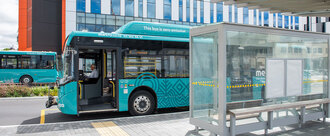
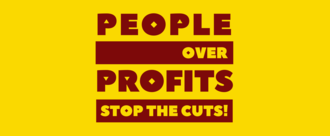.png)

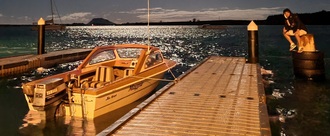

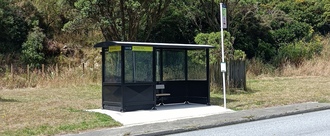
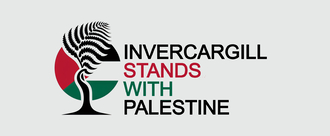(1).jpg)
